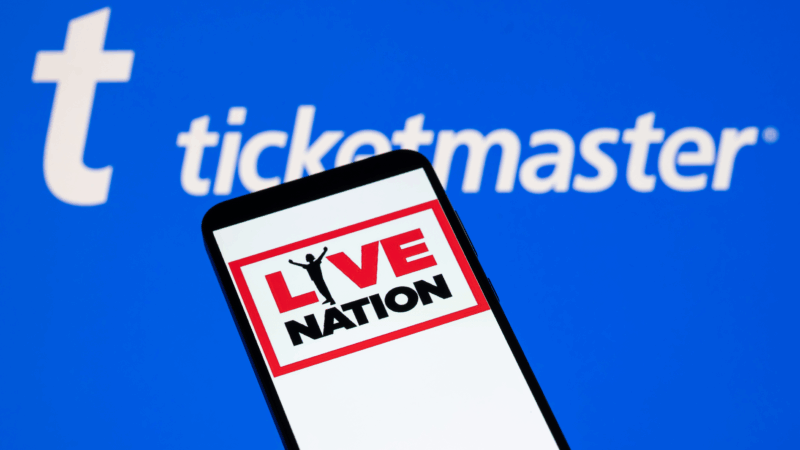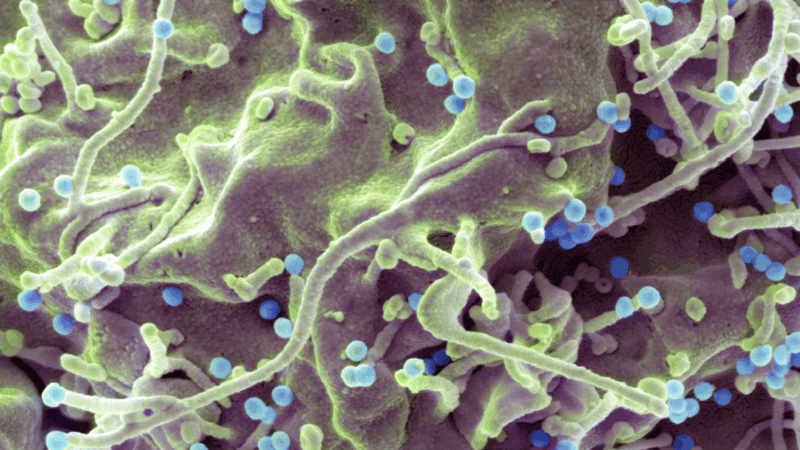The CDC still hasn’t issued COVID vaccine guidelines, leaving access in limbo
Remy Sweeney-Garrett desperately wants to get her daughters vaccinated against COVID-19. But so far that’s been impossible.
“I’m very worried, and frustrated,” says Sweeney-Garrett, 34, who lives in Seattle with her 9-year-old daughter Maxine and 18-month-old daughter Maeve. “And, yeah, I’m angry.”
Sweeney-Garrett hasn’t been able to get her daughters the shots because the Centers for Disease Control and Prevention has yet to issue final guidelines for administering them. The rules are necessary for the federal Vaccines for Children Program to start shipping the vaccines to doctors, health departments and others. About half of U.S. kids are eligible for shots through the program.
“I’m worried about my youngest daughter in particular having to go to the hospital because she is susceptible to respiratory complications,” Sweeney-Garrett says. “And it’s frustrating because I feel like this is within the control of the people in our government.”
The lag by the CDC is very unusual. Typically, the CDC acts within days – sometimes hours – because of the urgency of getting shots into arms before the winter surge.
The delay has created “a lot of confusion both among the public and even among providers around what the status is,” says Dr. Susan Kansagra, chief medical officer for the Association of State and Territorial Health Officials.
Sweeney-Garrett is far from alone.
“We have parents asking every day for vaccines. They want the COVID vaccine,” says Dr. Elias Kass, who’s the Sweeney-Garrett family’s doctor. “And we don’t have it. And we don’t have an ETA. We don’t have anything. We don’t want kids to be sick. We have the opportunity to prevent that suffering. And we as a society are blowing it.”
The CDC’s delay has also forced adults seeking vaccination to continue navigating an often confusing and frustrating patchwork of state rules that have, in many places, made it difficult if not impossible for them to get vaccinated too. Even though many states have taken steps to make it easier for people to get the vaccines, some still require prescriptions and some pharmacists are still turning away people who can’t document they meet new eligibility requirements.
“It’s a mess. And it’s an easily avoidable mess,” says Dorit Reiss, who studies vaccine policies at the University of California, San Francisco. “They chose not to take action. I think it will harm public health and the result will be more COVID-19 and more harm from it.”
The Department of Health and Human Services, which oversees the CDC, did not immediately respond to NPR’s requests for comment or explanation.
This year’s roll-out of the COVID vaccines has been unusually chaotic from the start. Until this year, anyone 6 months or older could get vaccinated by their pharmacist without a prescription. But for the first time this year, the Food and Drug Administration only approved the new shots for people at risk for serious complications because of their age or health, causing widespread confusion and frustration.
Then the CDC’s powerful Advisory Committee on Immunization Practices, which Health Secretary Robert F. Kennedy Jr. packed with like-minded anti-vaccine members, weighed in about the nuts and bolts of making them widely available.
After a tumultuous two-day meeting last month, Kennedy’s committee recommended adding a new hoop to getting vaccinated, but also took steps that could make more people eligible, let more pharmacists give the shots and start shipping the vaccines for kids.
But the CDC has yet to accept those recommendations— freezing everything in limbo.
“This is a critical piece of enabling downstream access,” says Kansagra of the Association of State and Territorial Health Officials. “It’s a huge problem.”
And now with the government shut down, no one knows when the CDC might finally act or what the agency might do.
Officials are especially worried because of the upcoming winter respiratory reason.
“We don’t know exactly how bad a season it could be, but it could certainly be very bad,” says Dr. Philip Huang, director of the Dallas Health and Human Services department in Texas. “It’s very frustrating. Our jobs are being made harder rather than easier.”
This quiet epic is the top-grossing Japanese live action film of all time
The Oscar-nominated Kokuho tells a compelling story about friendship, the weight of history and the torturous road to becoming a star in Japan's Kabuki theater.
The Live Nation trial could reshape the music industry. Here’s what you need to know
On Tuesday opening statements will begin for the federal antitrust trial against Live Nation, one of the largest entertainment companies in the world.
A new one-a-day-pill holds promise for HIV’s ‘forgotten population’
It's designed to take the place of complicated, multiple drug regimens that many people with HIV need to follow. And it's also beneficial because the HIV virus is always evolving.
For filmmaker Chloé Zhao, creative life was never linear
Director Chloé Zhao used meditation, somatic exercises and dance to inspire the cast and crew of this Oscar-nominated story about William Shakespeare's family.
10 new books in March offer mental vacations
March is always a big one for books – this year is no different. We call out a handful of upcoming titles for readers to put on their radars — offering a good alternative to doomscrolling.
Sen. Chris Coons, D-Del., talks about the war with Iran and upcoming war powers vote
NPR's A Martínez asks Delaware Democrat Chris Coons, a member of the Senate Foreign Affairs Committee, about the war with Iran.







